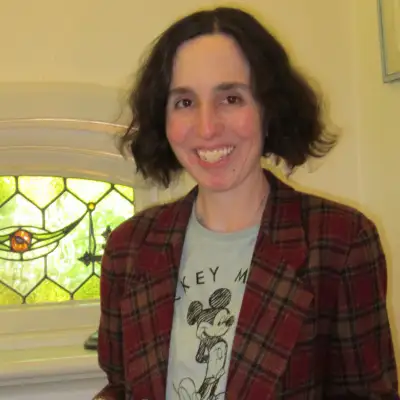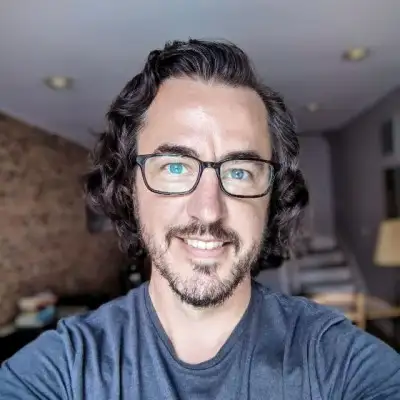Episode 67: [Value Boost] The 3 Level Hierarchy That Protects Your Data Science Credibility
Download MP3[00:00:00] Dr Genevieve Hayes: Hello and welcome to your Value Boost from Value Driven Data Science, the podcast that helps data scientists transform their technical expertise into tangible business value, career autonomy and financial reward. I'm Dr. Genevieve Hayes, and I'm here again with Dr. Brian Godsey, data science lead at Datastacks and author of Think Like a Data Scientist, to turbocharge your data science career in less time than it takes to run a simple query. In today's episode, you'll learn how to prevent deadline pressure from undermining the quality of your data science work.
[00:00:41] Welcome back, Brian.
[00:00:42] Dr Brian Godsey: Thank you for having me again.
[00:00:44] Dr Genevieve Hayes: In your book, Think Like a Data Scientist, you introduced a valuable hierarchy for evaluating the various concerns data scientists typically face in every project they complete. So knowledge first, technology second, opinions third, but we all know what happens when deadlines loom.
[00:01:05] Dr Brian Godsey: This hierarchy often gets flipped on its head. So, today I'd like to explore practical strategies for maintaining that proper process when you're facing deadline pressure. So, to begin with, what exactly do you mean when you say knowledge first? technology second, opinions third.
[00:01:27] So with these 3 levels of priority in these processes, basically, I try to remind myself with knowledge 1st. That we have facts facts are never going to change or well, they are true right now and we can't wish them away .
[00:01:43] Dr Brian Godsey: And if we forget that, then we're bound to make some sort of mistake. That's why those comfort. Technology. 2nd, because. We like to use the technology that we're familiar with. We like to use technology. That is the latest cutting edge stuff that will solve the problem in a really sophisticated way, but we shouldn't let that determine which technology we use.
[00:02:04] So, basically we have the facts 1st, because those are true. Technology is a thing that can get us there, but we shouldn't let our own favorite technologies get in the way of solving the problem in the best way. And then opinions. Last in this case, because they are not facts.
[00:02:18] We know that we want things to be true. We wish things to be true. We have assumptions, but we shouldn't let our opinions and our assumptions and our wishes cloud our judgment in the light of facts and what technology is telling us.
[00:02:32] Dr Genevieve Hayes: So knowledge and facts, that's what's actually contained in the data. Technology is your software tools and data science techniques and opinions are, well, what we would like to be true and also what our bosses would like to be true. Is that right?
[00:02:52] Dr Brian Godsey: Yes, that is correct.
[00:02:53] Dr Genevieve Hayes: So, why is it important that data scientists maintain this hierarchy at all?
[00:02:58] I mean, what's wrong with falling back on opinions or technology when deadlines start to loom?
[00:03:04] Dr Brian Godsey: Yeah, that's a really good question. I think that when deadlines are looming, usually a very common scenario is that the bosses or some stakeholder is trying to tell you, well, we want these results. And ideally, we would have these really good results. And so these wishes, these opinions of what they want to be true, what they think should be true, then start affecting what we're actually doing.
[00:03:23] And so even academic researchers sometimes bend their data to bring them to the conclusion that they want to have. And so when there's all this pressure to have results, to have good results, then sometimes the priorities become the urgent thing. The urgent thing being getting results now, rather than making sure we stick to the things that we actually know to be true.
[00:03:44] Like I said a minute ago it's important not to lose sight of the facts. If we do lose sight of the facts, then we're, potentially bound to make some sort of mistake along the way, especially if we're letting our opinions lead us away from the things we know to be.
[00:03:56] Dr Genevieve Hayes: Well, you have the classic situation where the deadline's looming, and data scientists can tend to search for facts that support the opinions rather than going to the trouble of changing the opinions of The powers that be.
[00:04:09] Dr Brian Godsey: Definitely, yes. Between data snooping and cherry picking and filtering out outliers that just don't agree with what you're trying to do. Yes, absolutely. That totally happens. It's unfortunate, but and it's easy. I mean, it's an easy way to get to where you want to get at the, at the current time, but it may lead to worse results down the road.
[00:04:25] Dr Genevieve Hayes: Oh yeah, I mean, it's the fast solution. Find the facts that support the opinion and then everything's done, you've met the deadline. But , eventually you're going to end up having a fall because of that.
[00:04:36] Dr Brian Godsey: Exactly. Yeah. It may be a shortcut, but it's a shortcut for a reason. You're definitely leaving something out along the way.
[00:04:42] Dr Genevieve Hayes: Yeah, it's a shortcut off a cliff.
[00:04:43] Dr Brian Godsey: Yeah, . That's a good one.
[00:04:45] Dr Genevieve Hayes: So, is there a specific technique that you can share to help our listeners maintain that knowledge first priority, even when they're racing against the clock and their boss is saying, look, just find that fact that supports my opinion so that I can get this board paper written or whatever?
[00:05:04] Dr Brian Godsey: I think just saying knowledge 1st and remembering, maybe even making notes of this is what the data has told me.
[00:05:10] This is what I know to be true. It's not that I think it's true or that it might be true. It's like, I know this to be true. And so it might be a collusion. You came from the data during exploratory data analysis or something like that. But if you actually write down, or just really keep firmly in mind,
[00:05:24] what do we know to be true as a fact? What is an assumption that I made? And what are the wishes and assumptions that other people made around me? And just keeping that straight the whole time not letting anyone else Tell you that the facts are no longer true.
[00:05:37] They shouldn't be convincing you of that. And if they can, then you're going to be on the wrong path. And so really it's all about just maintaining this knowledge of what is actually true. It's very conceptual, very fuzzy, but the number of times someone has pulled me off of, what I would consider to be the correct path because they were so convincing with their opinions.
[00:05:56] That they managed to convince me that, I should sort of stray away from the path that I knew to be better. It happens often enough that I think that it's worth mentioning.
[00:06:04] Dr Genevieve Hayes: Often I find, if you're in a situation where you're starting to get confused and don't know the way forward, and this is not just true with data science, but true with life. Often what I'll do is just, sit there with a notebook and Write down, okay, what do I know is true?
[00:06:19] And, this is my list of facts, and then once I've got that clarified in my mind, I find it a lot easier to make decisions. And it sounds like what you're saying is just even if it's a written list of that next to your desk for your data science problems, and keep referring to that, then you're not going to stray too far from the path.
[00:06:41] Dr Brian Godsey: Yeah, that would be the ideal situation, I think. It's almost like a mystery game in that way, where if you write down all the facts that you have, and you can put them together in certain ways it might lead you to the right conclusion. And I think that you have these Things that might be true that are sort of, I suspect this is true, but making sure you know the difference between that and the things you actually know to be true and never try to contradict the things you actually know to be true.
[00:07:03] And if you have a nice list in front of you, it's easier to remember which facts you should not contradict. Yeah,
[00:07:10] Dr Genevieve Hayes: your own data science version of those murder bullets you see in every police drama.
[00:07:15] Dr Brian Godsey: yeah, exactly. Exactly.
[00:07:17] Dr Genevieve Hayes: So if our listeners take away just one habit or practice to help them maintain their data science process integrity under pressure, what should it be?
[00:07:26] Dr Brian Godsey: Know what is a fact and check your assumptions. Really, I mean, checking your assumptions is so valuable in so many fields. And however you need to do that it's gonna be helpful.
[00:07:36] Dr Genevieve Hayes: And that's a wrap for today's Value Boost. But if you want more insights from Brian, you're in luck. We've got a longer episode with Brian where we discuss how the data science process has evolved in recent years and how to adapt your approach for maximum impact in the AI era. And it's packed with no nonsense advice for turning your data skills into serious clout, cash and career freedom.
[00:08:04] You can find it now wherever you found this episode or on your favorite podcast platform. Thanks for joining me again, Brian.
[00:08:12] Dr Brian Godsey: Thank you for having me. It's been a lot of fun.
[00:08:14] Dr Genevieve Hayes: And for those in the audience, thanks for listening. I'm Dr. Genevieve Hayes, and this has been Value Driven Data Science.
Creators and Guests
![Episode 67: [Value Boost] The 3 Level Hierarchy That Protects Your Data Science Credibility](https://img.transistorcdn.com/1S_-FHWTSYLwlZw4Bul2D1FFcsDYJwGa0xZKfIO2hbw/rs:fill:0:0:1/w:800/h:800/q:60/mb:500000/aHR0cHM6Ly9pbWct/dXBsb2FkLXByb2R1/Y3Rpb24udHJhbnNp/c3Rvci5mbS80YzU3/MWI0ZjdlNDA1OTYz/ZGE1OWEyYTEyODk4/NDQ2NC5qcGc.webp)

